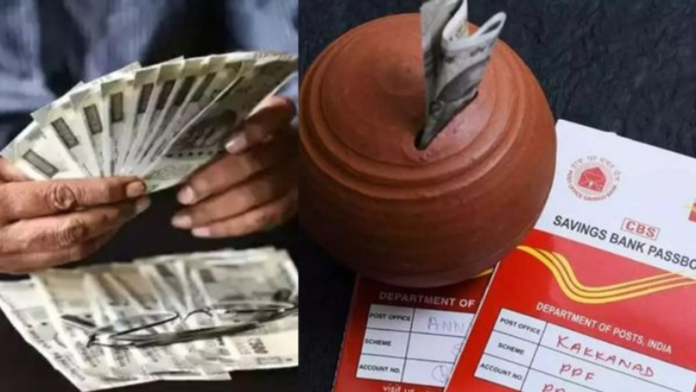
– Advertisement –
Everyone saves some amount from their income and plans to invest it in a place where on one hand their money is completely safe and they get a good return on it. In this regard, the Post Office Small Saving Schemes are quite popular, where they beat fixed deposits in terms of interest on investment, while the government itself guarantees the safety of the investors’ investment.
There is one such special post office scheme, which is specially designed for senior citizens and it can prove to be very effective in overcoming the shortage of money in old age. Its name is Post Office Senior Citizen Scheme, by investing in which one can earn Rs 20000 every month, that too while sitting at home. Let’s know how?
Benefit of tax exemption with great interest
Even after retirement, if there is a fixed income every month, then one will not have to face financial problems and old age can be spent in fun. For this, investing in such a scheme can prove to be a better option, in which a fixed amount keeps reaching your account every month. There is a government scheme (Govt Scheme) that guarantees monthly income in lump sum investment, Post Office Senior Citizens Saving Scheme, which is very popular in terms of earning after retirement. In this, while the government offers higher interest rate (Post Office SCSS Interest Rate) in Post Office Senior Citizen Saving Scheme than the interest (FD Interest Rate) on FD in all banks, at the same time one also gets the benefit of income tax exemption (Tax Benefit).
- Start investing in this scheme with just Rs 1000
- 8.2% interest in Post Office Senior Citizen Scheme
- Tax exemption of Rs 1.5 lakh under section 80C of Income Tax
The age limit under this scheme,
as is clear from the name of the scheme, is being run especially keeping in mind the senior citizens. So let us tell you that in this Government Scheme, single or joint account of any person of 60 years of age or above can be opened. Under the scheme, persons of age 55 to 60 years taking VRS from government posts in the civil sector or persons from the defense sector (retired from Army, Air Force, Navy and other security forces) at the age of 50 to 60 years can open this post office scheme account.
- Maturity of Post Office Senior Citizen Savings Scheme is 5 years
- An investor can invest a lump sum amount of Rs 30 lakh in this scheme
This way you will get ₹20000 income every month
Now the biggest thing is how can you ensure a monthly income of Rs 20000 every month by investing in this scheme. So its calculation is very easy. Actually, if an investor opens an account in Senior Citizen Savings Scheme and invests a lump sum of Rs 30 lakh in it, then according to the fixed interest rate of 8.2 percent, he will get only interest of Rs 2.46 lakh annually and in this way, his interest income will be Rs 20,500 per month while sitting at home.
You can close the account before maturity
Under Post Office SCSS Scheme, you can open an account by going to any nearest post office branch. Another special thing about this scheme is that after opening the account, one gets the facility to close it anytime. However, some rules have been fixed for this, under which if an investor closes the account in less than a year of opening it, then no interest will be paid on the invested amount. On the other hand, if the account is closed between 1 to 2 years, 1.5% will be deducted from the interest amount and if such a step is taken between 2 to 5 years, then 1% will be deducted from the interest amount.
Tax on interest amount:
While this government scheme has many benefits, one of its rules is a bit shocking. In fact, citizens earning income under this scheme have to pay tax. However, if the interest received on investment in this savings scheme is more than Rs 50,000, then TDS has to be paid on it, but if you have filled Form 15G/15H, then TDS will not be deducted on the interest.
iPhone 16 Pro Max will be available at a discount of Rs 1 lakh, bumper discount for the first time
– Advertisement –
#Post #Offices #scheme #Invest #guaranteed #earn #month #spend #age #comfort #WhoWiki.org

